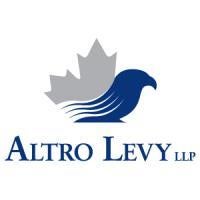The Florida Land Trust is sometimes recommended for Americans to hold title of their personal use U.S. real property. It is relatively inexpensive to set up, it is an effective way of avoiding probate on the assets inside the trust and it may also avoid incapacity issues if properly set up. We have been seeing the Florida Land Trust as a recommendation for Canadians owning U.S. real property. Although the benefits previously listed apply to Canadians as well, there are some major pitfalls to Canadians owning their U.S. real estate in Florida Land Trusts.
What is a Florida Land Trust?
A Florida Land Trust is a revocable grantor trust that is specifically created to hold Florida real property. It was adapted from the Illinois Land Trust, which has been used for over a hundred years, and whose main purpose is to keep the property owner’s identity hidden. Land trusts are unique from both revocable and irrevocable trusts under common law, as they vest both legal and equitable title to the real property in the hands of the trustee. Additionally, the trustee is given only administrative duties to perform, with any other duties being dictated by the beneficiaries.
Creditor Protection
The Florida Land Trust keeps ownership interests of Florida real estate or other personal property confidential and private because the Florida Land Trust keeps your name off the public record. Although this may help keep creditors away, the actual language in the document does not prevent creditors from reaching into the trust and grabbing the property in the event that they have been made aware of the identities of the beneficiaries. In addition, since the trust offers no option for future estate planning for beneficiaries, any potential barriers that exist between the property and the creditors evaporate upon the passing of the beneficiaries or once the property has been distributed.
Double Taxation
Canadians owning real property in the U.S. may be subject to pay taxes to the Internal Revenue Service (IRS) in three situations: income tax if the property generates revenue, capital gains tax if the property is sold and U.S. estate tax upon death if he/she passes away owning the property personally.
Canadians are taxed on their worldwide income no matter where it’s generated. Therefore, income tax and capital gain tax generated in the U.S. are subject to taxation by both the Canadian Revenue Agency (CRA) and the IRS alike. This is called double taxation. The Canada-U.S. Tax Treaty, however, allows taxpayers to avoid double taxation, as they can claim a credit (“Foreign Tax Credits”) for foreign income or capital gain tax paid in the U.S. toward the Canadian tax owed on the same income.
Taxation of the Florida Land Trust
Income/Capital Gains Tax
In the U.S. a Florida Land Trust is a flow-through entity. This means that the IRS will tax the beneficiary of the trust (the owner) on any income or capital gains generated by the property in the trust. In Canada, the Florida Land Trust is taxed as a separate entity at the highest tax rate. Because the taxpayers are not the same on each side of the border, Foreign Tax Credits cannot be claimed, and thus the Canadian owner is being taxed twice on the same income.
U.S. Estate Tax vs. 21-Year Rule
In addition to double taxation on any income or capital gains earned, a loss of Foreign Tax Credits will also result out of any U.S. Estate Tax owed upon death. Typically, if any U.S. Estate tax is payable upon the passing of a Canadian owning U.S. real estate, a Foreign Tax Credit is applicable upon the Federal portion of said owner’s Canadian capital gain tax owed at death (“deemed disposition at death”).
In Canada, because the Florida Land Trust is treated as a separate taxpayer, the owner’s death will not trigger a deemed disposition, and therefore no tax will be owed in Canada even if the property has increased in value. Although this seems like good news (no tax payable is always good news) we must keep in mind that a Canadian trust is deemed to have disposed of its assets every 21 years. So, every 21 years, the Florida Land Trust will have to pay capital gains tax to the CRA if the property has increased in value. Again, this tax payable will not generate a Foreign Tax Credit since there will not be a disposition of assets from the same taxpayer.
Although the Florida Land Trust may be the appropriate structure for some Americans, we Canadians must be careful, as it may create more problems than it solves. Canada has some of the highest tax rates in the world, so why pay more?




 />i
/>i
